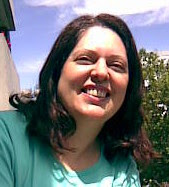I was feeling a little out of sorts this morning and stayed in bed. Officially, the EVO-TESOL courses finished on Sunday, but of course our minds don't stop there -nor have the meeting places disappeared.
And so, just like yesterday I was finally able to read a whole article from the Financial Times and a blog post response to it and a blog post on who made the best ESP teachers -professionals gone into teaching or teachers going into specialisation (I'm being reductionist here, the post went deeper than that) as well as a printed column by J.L. de Diego on cynicism...Just like yesterday I was able to read all that (something I hadn't been able to do on the past 6 weeks because I was more focused on doing things and then reflecting rather than on reading or listening to reflections and opinions and processing them) -today, it seems, I was ready to start reading the Keen vs Weinberger text debate from the online version of the Wall Street Journal (July 18, 2007) my fellow participants on the Multiliteracies course have been discussing these weeks.
I only got to page two before I wanted to come and write about it, which (I think) already says something about human nature.
So far Keen has explained his position -the topic being Web 2.0, and Weinberger has started to respond. Keen's argument seems to be taking an "either / or approach" so far: "Is Web 2.0 a dream or a nightmare?" "Is it a remix of Disney's Cinderella or of Kafka's Metamorphosis?" -I finally understood what "flattened"comes to mean in a context like this. Keen reminds us that there are arguments of great democratization in relation to Web 2.0. So flattened comes to mean "we are all equal in this new stage of the Web" (my emphasis), hence the democratization reference. I'd heard flat, flattened, and other derivations before in similar contexts but had never connected them to equality or democratic forces at work (granted, Keen uses it in a somewhat ironic way in my opinion, but that doesn't change the connection I've made in my mind).
And yet, if I go back to my childhood, I realize I should have connected it at once: I recall a local (Argentine) comic strip by Quino called Mafalda. Mafalda is a precocious girl interested in political issues (she "lived" in the 60s and or 70s). She has a group of friends and one of them is called Liberty (well, Libertad). Liberty is an advocate of class and social struggle. In one strip she's explaining to Mafalda what her father's explained to her: that today (I'm quoting and translating rather freely both in language and interpretation, but trying to be true to the original); "Today", she says as she points to a wall in the street, "we're like these bricks -one on top of the other, the ones on top pressing on the others. But one day,"she goes on,"we'll be like this", and she gestures towards the cobbles on the road, "all at the same level, without anyone above us or oppressing us".
In the next frame we see a luxurious car drive by.
A Challenge for School Leaders
2 years ago




No comments:
Post a Comment